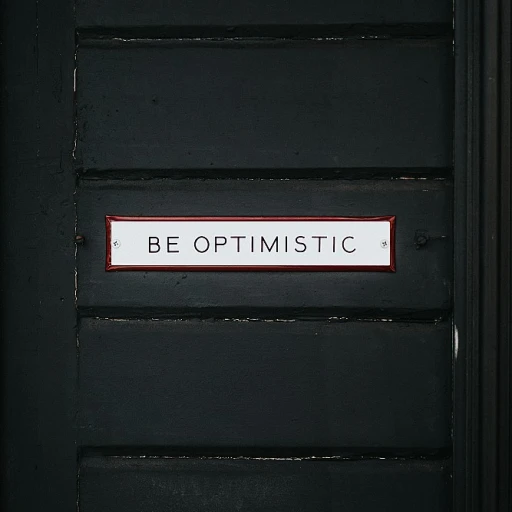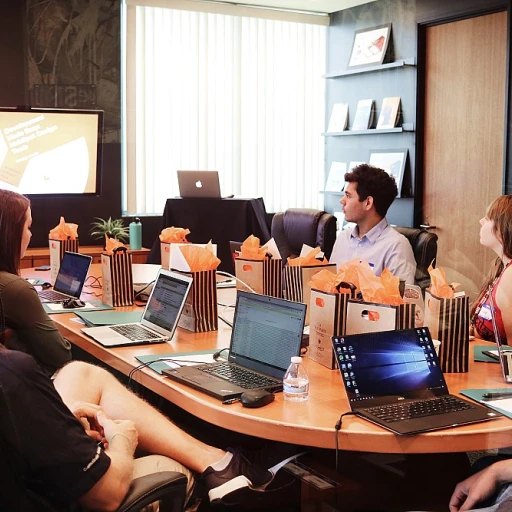
Reframing hr professionals day 2024 in the age of artificial intelligence
Hr professionals day 2024 invites every human resource professional to rethink how artificial intelligence reshapes daily practice. This professional day is no longer only about symbolic recognition ; it is about how each employee and every team can rely on data informed tools to strengthen employee engagement and workplace culture. When organizations link this appreciation day to concrete AI projects, they turn celebration into a catalyst for organization success and better work for all employees.
For many human resources professionals, today feels like a tipping point where artificial intelligence moves from experimental pilots into core performance management and risk management processes. HR leaders now use AI to map talent across the company, align training development with future skills, and personalize support for mental health while respecting strict compliance requirements. In this context, hr professionals day 2024 becomes a moment to highlight management benefits that go beyond efficiency, such as more inclusive company culture and more transparent recognition practices for every employee.
AI enabled tools already assist the modern resource professional with tasks ranging from payroll checks to workforce planning, freeing time for deeper human conversations. When a human resource team automates repetitive work, it can focus on best practices in employee engagement, professional development, and employee recognition that truly shape workplace culture. This shift allows each professional to act as a strategic partner for organization success, turning happy human experiences at work into a measurable advantage for the company and its employees.
How AI transforms daily work for every human resource professional
On hr professionals day 2024, many human resources teams are quietly relying on artificial intelligence to keep the workplace running smoothly. AI systems now support payroll accuracy, leave management, and compliance monitoring, reducing manual work while giving each professional more time for strategic conversations with employees. When a resource professional can trust automated checks, they can focus on human talent, company culture, and employee engagement instead of chasing data errors.
In recruitment, AI helps identify talent that fits both the role and the culture of the organization, which strengthens long term organization success. Tools that analyze skills, experience, and behavioral signals guide the human resource professional, but final hiring decisions remain firmly human to preserve fairness and respect for candidates. This balance between artificial intelligence and human judgment is becoming a central theme of best practices in modern management and training development.
AI also supports professional development by recommending learning paths that match each employee profile and the needs of the company. When employees receive targeted training development suggestions, they feel stronger recognition and support, which improves employee engagement and reduces risk management concerns linked to obsolete skills. In this context, guides on enhancing workforce allocation with AI in human resources help professionals align teams, work schedules, and learning opportunities with strategic goals.
Employee engagement, recognition, and AI enhanced workplace culture
Hr professionals day 2024 is an ideal moment to connect employee engagement strategies with artificial intelligence in a transparent way. Many employees worry that AI might replace the human side of work, yet the strongest results appear when AI reinforces recognition, support, and mental health initiatives. When a human resource professional explains how algorithms help identify burnout risks or uneven workloads, employees better understand the benefits for the whole team and workplace culture.
AI driven sentiment analysis can scan anonymous feedback to highlight patterns in company culture, such as teams that lack recognition or feel excluded from professional development opportunities. These insights allow human resources professionals to design targeted appreciation day campaigns, training development programs, and performance management adjustments that respond to real employee voices. By using tools described in resources on predictive workforce analytics in human resources, organizations can anticipate issues before they damage trust or organization success.
AI also helps personalize recognition by tracking contributions that might otherwise remain invisible, especially in hybrid work environments where employees are less visible. When a company uses artificial intelligence to surface quiet but essential work, managers can offer timely recognition and support that make each employee feel like a valued professional. This approach turns every professional day or appreciation day into a sustained practice of celebrating professional achievements, rather than a single symbolic event.
Risk management, compliance, and ethical safeguards for AI in HR
As organizations celebrate hr professionals day 2024, responsible leaders are paying close attention to risk management and compliance in artificial intelligence projects. AI systems that handle employee data, payroll information, or performance management metrics must respect privacy laws and internal governance standards at every step. Human resources professionals therefore need clear best practices, from data minimization to transparent communication with employees about how their information is used.
Ethical risk management also requires that a human resource professional regularly audits AI models for bias that could harm employees or candidates. When algorithms influence hiring, promotion, or training development decisions, the company must ensure that workplace culture remains fair and inclusive for all groups. This is where human resources teams, legal experts, and data specialists form a cross functional team to monitor outcomes and adjust systems when necessary.
Some organizations look to public institutions, including offices such as the governor general in certain jurisdictions, for guidance on ethical frameworks and human rights standards that affect workplace technology. These references help human resources professionals align artificial intelligence projects with broader social expectations about fairness, mental health, and human dignity at work. By linking AI governance to existing compliance structures, companies can show employees that every professional day and appreciation day is grounded in respect for human values and long term organization success.
From administration to strategy: management benefits and AI enabled HR leadership
Hr professionals day 2024 highlights how far the human resource function has moved from pure administration toward strategic leadership supported by artificial intelligence. Routine tasks such as payroll checks, attendance tracking, and basic compliance reporting are increasingly automated, which frees time for deeper conversations about talent, culture, and organization success. This shift allows each professional to focus on management benefits that directly influence employee engagement and company performance.
Strategic HR teams now use AI to model different workforce scenarios, test training development investments, and evaluate the impact of professional development on long term results. Insights from these models help a resource professional advise executives on best practices for team design, risk management, and workplace culture across multiple locations. Articles on AI driven HR strategies with employer of record models show how global companies manage compliance and support employees in complex regulatory environments.
When HR leaders present AI informed recommendations, they strengthen their role as trusted partners who balance human needs with organizational goals. They can show how investments in mental health support, employee engagement programs, and appreciation day initiatives contribute to measurable outcomes such as retention and productivity. In this way, every professional day becomes an opportunity to communicate how human resources, supported by artificial intelligence, drive sustainable value for employees, teams, and the wider company.
Celebrating professional impact and building the future of human resources
On hr professionals day 2024, organizations have a chance to celebrate the often invisible work of every human resource professional who supports employees through change. Recognition events that highlight AI related projects, such as new performance management dashboards or mental health support tools, show how HR teams blend technology and empathy. When leaders frame this appreciation day around both human stories and data informed achievements, they reinforce a culture of respect and learning.
Forward looking companies use this professional day to involve employees in conversations about artificial intelligence, workplace culture, and future skills. Workshops where teams explore AI tools, discuss ethical questions, and share best practices help build trust and shared ownership of change. These sessions also allow human resources professionals to gather feedback on how AI affects daily work, employee engagement, and perceptions of company culture across different groups.
Ultimately, celebrating professional contributions in HR means recognizing that technology alone cannot create a happy human experience at work. It is the combination of skilled professionals, supportive teams, and thoughtful management benefits that turns artificial intelligence into a force for organization success and individual growth. By using hr professionals day 2024 to honor this balance, companies send a clear message that human resources remain a vital, human centered function in an increasingly digital workplace.
Key statistics on AI and human resources
- Include here the most relevant percentage of HR leaders who report using artificial intelligence in at least one core human resource process.
- Mention the share of organizations that link AI initiatives to improved employee engagement or workplace culture outcomes.
- Highlight the proportion of companies that identify risk management and compliance as primary concerns in AI enabled HR projects.
- Note the average reduction in administrative work hours for HR professionals after implementing AI tools for payroll and performance management.
- Indicate the percentage of employees who report higher satisfaction when professional development recommendations are personalized with AI.
Questions people also ask about AI and hr professionals day 2024
How does artificial intelligence change the role of human resources professionals today ?
Artificial intelligence automates repetitive tasks, such as payroll checks and basic compliance reporting, which allows human resources professionals to focus on strategic work. They spend more time on employee engagement, training development, and company culture initiatives that require human judgment. This shift turns HR from an administrative function into a strategic partner for organization success.
Can AI improve employee engagement and recognition in the workplace ?
AI tools can analyze feedback, performance data, and collaboration patterns to identify employees or teams that need more recognition or support. Human resource professionals then use these insights to design appreciation day campaigns, professional development opportunities, and mental health programs. When used transparently, AI strengthens trust and helps create a more inclusive workplace culture.
What are the main risks of using AI in human resources management ?
The main risks involve bias in algorithms, privacy concerns, and weak compliance controls around employee data. Without strong risk management and regular audits, AI systems can unintentionally disadvantage certain groups or make opaque decisions. Human resources professionals must therefore combine technical safeguards with clear communication and ethical oversight.
How can HR teams prepare employees for AI driven changes at work ?
HR teams can organize training development sessions that explain how artificial intelligence works and how it affects daily work. They should invite questions, address fears about job security, and highlight new professional development paths created by AI. This open dialogue helps employees feel supported and more engaged with the transformation.
Why is hr professionals day 2024 important for the future of human resources ?
This professional day offers a symbolic and practical moment to recognize how HR professionals guide organizations through AI driven change. By linking celebrations to concrete initiatives in performance management, mental health support, and company culture, organizations show that human resources remain central. It also encourages HR teams to share best practices and strengthen their role as ethical leaders in the digital workplace.













